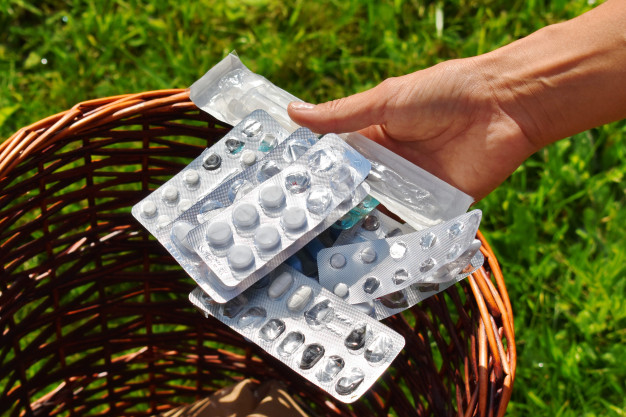The Proper Ways To Manage Household Medical Waste

Given the broad range of materials that health workers use in their daily health care activities, any waste might harm the environment and the health of everyone if they are not disposed of safely. That's why several measures are in place in healthcare facilities for the proper disposal of medical waste.
The same applies to non-medical locations like our homes. Since we are using healthcare at home, we can also create medical waste now and then. It may not be as hazardous as the waste in the hospital, but it can cause great harm if you don't know how to manage them.
Read on and learn the proper ways of managing and disposing of the medical wastes generated in your home.
Identify Medical Waste At Home
Medical care in the home often involves medicines, vitamin injections, blood sugar monitoring, and antibiotic infusions. Unlike in the healthcare facilities, medical waste generated at home primarily includes sharps and medications.
However, personal care products, such as cosmetics, fragrances, sunscreen agents, and nutraceuticals or food that contain medicinal benefits also contribute to medical waste in the home.
Being aware of which items in your home are medical waste is crucial, so you will know where and how to dispose of them properly. Remember that flushing any of these items down the drain or throwing them in the bin carelessly may cause contamination.
How To Properly Manage Them?
Once you've identified the medical waste in your household, the next thing you'd think about is how to manage them properly. You can do it in several ways, but the following are essential steps to ensure safety.
Segregate
Segregation is the first key to manage medical waste effectively and the best practices for managing any waste start at the point of generation. Thus, it is your household's responsibility to segregate the medical waste produced in your home.
The first step is to keep medical and non-medical waste separate. This way, you'd be able to secure better the medical waste, which is hazardous because of its toxic properties. But since medical waste also falls into different categories, you would also need to segregate them.
Label
To categorize your household medical waste appropriately, you would have to sort them out into color-coded plastic bags or containers. Color-coding minimizes the error of mixing different medical waste. It also provides a visual sign of the potential risk posed by the waste.
You can use red containers for sharps waste, such as needles, blades, or razors while yellow containers for infectious waste like bandages, dressings, gloves, or plaster casts. For pharmaceutical waste, such as pills, injectables and antibiotics, you can use blue containers.
Although the law rarely requires the use of a color system, it's still essential you check with your local laws in labeling your household medical waste. But regardless of, make sure you are consistent in using the same color for all the waste in the same stream.
Storage
You would also have to check on the state law and local ordinances in terms of the characteristics of containers specified for each type of medical waste. For instance, containers for sharp waste must be puncture-resistant and leak proof.
But more than that, ensure that you store them somewhere that is off-limits. It's also vital that you keep them away from areas where you eat food or consume drinks. Remember that you need to secure storage for your household medical waste until you can dispose of them.
Disposal
You can get rid of most medical waste in your home through regular trash pickup, as long as they are segregated, labeled and sealed properly. Or you can hire a medical waste disposal company to pick up those wastes.
For the containers of sharp waste, make sure you tape the lid closed so they won't get spilled when tossed with other trash. The same with medical waste like medications and contaminated materials which you should put in a sealed bag. It's essential to note that you should not flush down any of these medical wastes.
Additional Things To Consider
Proper disposal is only one component on how you can manage medical waste in your home. But another way to lessen the impact of these medical waste is to reduce them as much as possible. Although healthcare is necessary and there's no way to eliminate its waste, there are ways you can do to lessen them.
Try to buy a reasonable amount of medication which you could consume before the expiration date. If the doctor gives you a new prescription, ask the doctor to give you enough so that less would go to waste if it doesn't work on you. You can also consider using plain soap instead of the antibacterial ones.
By doing these simple ways, you can help reduce medical waste and its impact on the environment.
Takeaway
Disposing of medical waste properly isn't that hard as long as you know how to do it. However, it requires a significant amount of care, discipline and commitment. If you get tempted to throw everything carelessly, think about the harmful effects it can do to anyone.
© MD News Daily.
